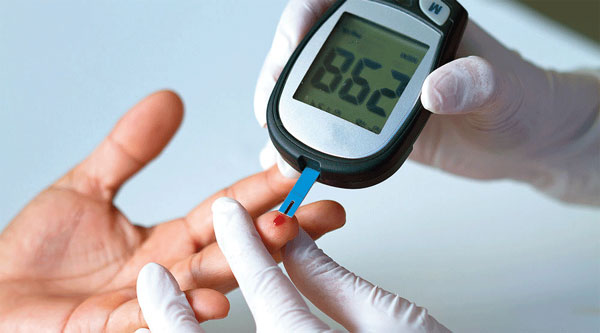Daijiworld Media Network - New Delhi
New Delhi, Aug 5: Diabetes is increasingly complicating the fight against tuberculosis (TB) in India, compromising immune responses, hindering treatment outcomes, and significantly raising the risk of death among co-affected patients, health experts warned on Tuesday.
With India home to the world’s highest TB burden — accounting for 28 lakh cases (26% globally) and an estimated 3.15 lakh TB-related deaths (29% globally) in 2024 — the growing intersection of TB and diabetes, now affecting over 100 million Indians, poses a double threat to public health.
“Diabetes weakens the immune system, increasing the risk of developing TB. When both diseases coexist, the outcomes are worse — from poor blood sugar control to higher treatment failure and mortality,” said Dr. Hemant D Shewade, senior medical scientist at ICMR–National Institute of Epidemiology, Chennai, in an interview.

A recent study published in PLOS One, led by Shewade and team, found that individuals with both TB and diabetes are:
• 2–3 times more likely to remain culture-positive during treatment,
• 4 times more likely to relapse after completing therapy, and
• 5 times more likely to die compared to TB patients without diabetes.
These figures underscore the dangerous synergy between the two diseases, especially in a country where both are on the rise. TB medications can also destabilize glucose levels, making diabetes harder to manage during treatment.
“Current TB programme guidelines treat diabetes patients the same, whether or not they also have TB,” Shewade noted. “But we urgently need evidence on whether stricter glycemic control (HbA1C below 7%) or a more lenient approach (below 8%) is better. Should insulin be added for all TB-diabetes patients? These questions remain unanswered.”
The study also proposed using capillary fasting blood glucose (cFBG) testing to monitor patients with both conditions more effectively.
Meanwhile, Type 1 diabetes patients appear especially vulnerable. Dr Urvashi Singh, from the Department of Microbiology at AIIMS, New Delhi, noted that these patients face a 3.5 to 5 times higher risk of developing TB, with increased relapse and mortality rates, especially when diagnosis is delayed.
In a recent study published in Multidisciplinary Respiratory Medicine, Singh and her team — including Dr R. Goswami, Dr Randeep Guleria, and Dr Abhilash Nair — examined 151 Type 1 diabetes patients attending a tertiary-care hospital. Over 10% tested sputum culture-positive for pulmonary TB, particularly those with a prior history of TB.
“This indicates a high prevalence of PTB in Type 1 diabetes patients, and they must be actively screened using sputum tests to enable early diagnosis and prevent further transmission,” Singh said.
The World Health Organization (WHO) already recommends that diabetic patients with a cough lasting more than two weeks be evaluated for TB, but experts suggest India needs to go further — with routine screenings and customized treatment plans.
With the TB-diabetes combination posing a growing challenge to healthcare systems, doctors and researchers are calling for policy-level interventions, better documentation, and stronger coordination between TB and diabetes control programmes.
Their message is clear: tackling these diseases together is no longer optional — it’s essential.